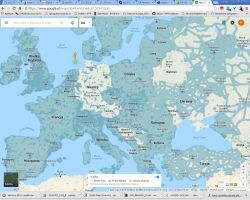Sawik7500 wrote: But I understand that, for example, I can make the recording available to the police if there is an offense registered by my equipment?
As much as possible. Only when Janusz comes to you and will want to record because eg your camera has registered that his car in the car park was scratched Grażyna backing only you can give him access and he must already go to the police and the police to pick you up.
Sawik7500 wrote: Can a passerby make problems for me that I made his image available?
Rather, not if you do not share this recording on the network or bystanders.
Sawik7500 wrote: My kid is monitoring and, at the request of the parents, a camera in the cloakroom has been added (where the kids leave their jackets and backpacks, not in f)
Monitoring in public institutions is usually explicitly described and marked and parents are responsible for minors as children, and if they agreed that monitoring should record what is happening in the locker room and if someone is stealing something, then there is no problem.
Sawik7500 wrote: at the request of parents
Sawik7500 wrote: I am afraid that some parent may be disturbing
Not everyone can be satisfied just as with the parking lots in front of the block one who lives downstairs and the closest do not bother and does not stink that someone parked and the one from the 10th floor will have a grudge, let only the rest of the neighbors get angry ...
As for the RODO itself, in most cases people have no idea that such a thing is and has an impact on their lives.
Sawik7500 wrote: Or another matter, monitoring in stores ... the topic of the river, and unless someone can find the punishment, it's not clear how to interpret it all.
Now even in the church in hospitals and in the forest there are cameras or on the bridge .... On the one hand, people want to feel safe and on the other they are outraged that someone wants some data from them ... The biggest stupidity is the government from the people of the proof scan and yet greater possibility of taking a loan for scanned proof. The proof is kept with you and is only for inspection ... but now and anyway, it will suffice to phone no. As long as there is no left card with a number from eg from the Czech Republic xD



